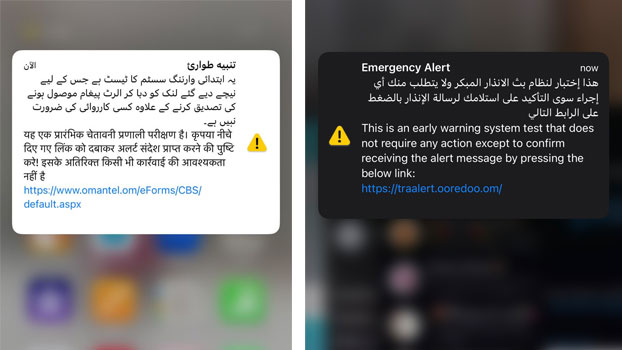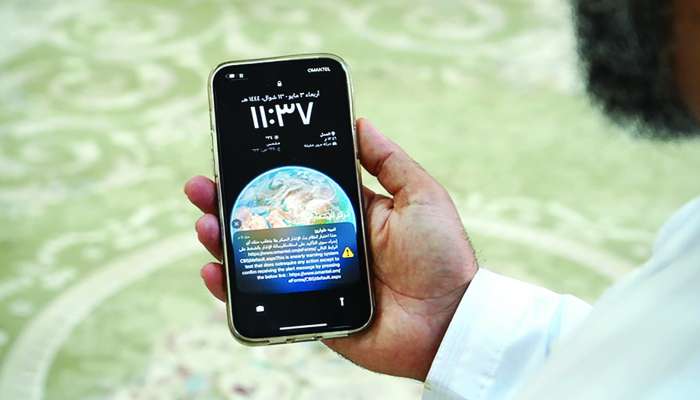

MUSCAT: An emergency alert that buzzed on thousands of mobile phones in Muscat Governorate was part of a trial run for the early warning service that is expected to be launched later in the Sultanate of Oman.
Several subscribers in Muscat confirmed that they had received messages for ‘Emergency Warning Broadcast’ on their phones on Tuesday morning.
While some subscribers panicked thinking it was a spam alert, others followed the instructions and appreciated the service.
Some were even clueless, when they got the message. “I didn’t know what was happening as the ringtone was completely different. I just accepted the message and then it stopped,” Kumar, an expat living in Ruwi said.
The early warning service system is expected to warn people of natural disasters such as hurricanes, tsunamis, heavy rains, strong winds, poor visibility and industrial disasters such as fires or gas leaks.
The experiment on Tuesday was done by Telecommunications Regulatory Authority (TRA) in collaboration with the Civil Aviation Authority (CAA) and the telecom services providers Ooredoo and Omantel.
In his remarks to Times of Oman’s sisterly radio channel Al Shabiba, Ibrahim bin Hamdan Al Maawali, a technical expert with TRA, said: “The early warning broadcast system aims to warn people of natural disasters such as cyclones, hurricanes and tsunamis, or industrial disasters such as fires or gas leaks.
“The early warning broadcast service is a new system which is linked to the Civil Aviation Authority, the body responsible for monitoring, sending early warning and emergency management.”
Al Maawali added: “The system can not only be used as a warning signal but can also be used to educate the public on how to respond in emergency situations and debunk rumours.”
The TRA expert said that “the Sultanate of Oman is not immune from natural disasters.” “It is imperative to have an effective early warning system for communicating with the public and subscribers quickly. This system will help in saving lives,” he said.
Al Maawali said: “During the time of an emergency situation in an area, the subscribers in the target area who are at risk can receive the warning message to plan their escape quickly.”
He stressed that the experiment on Tuesday was to test the challenges faced in such situations and resolve them.
Al Maawali said: “Our first experiment took place in the Wilayat of Al Mussanah earlier this month on May 3. We tested the system in Al Sharqiyah South and Al Wusta governorates on Monday, and on Tuesday, it was our first major experiment that targeted the coastal areas in the Governorate of Muscat.”
He said that a similar test will be carried out in Dhofar Governorate soon.
“The trial run will raise awareness among people on the benefits of the system,” he added.
The early warning system messages were received by people in four languages: Arabic, English, Hindi and Urdu.
Plans are in place to add more languages and subscribers have been asked to update their phone systems.
Al Maawali said that there was no stats regarding the number of people who received the warning messages in Muscat Governorate on Tuesday and added that those who didn’t receive the messages could register on the following link –https://eqp.datamining.om/estebyan/EarlyWarningBroadcast
It may be mentioned that Oman has suffered the wrath of tropical cyclones over the past many years and the coastal areas are more vulnerable to extreme weather conditions.
One of the worst disasters to hit Oman was Tropical Cyclone Gonu in 2007 followed by Cyclone Phet in 2010, which resulted in huge losses including several deaths. Cyclone Nilofar struck in 2014 and in 2018 Cyclone Mekunu lashed Oman but one of the strongest in recent times was in 2021, when tropical cyclone Shaheen battered the Sultanate and left a trail of destruction.